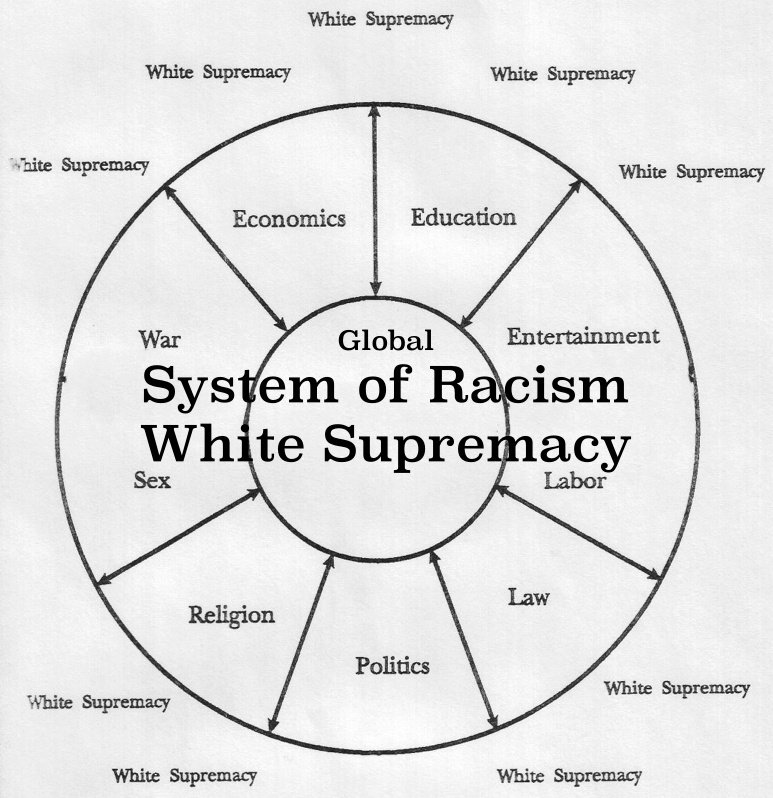The Right to be Left the Fuck Alone and Freedom of Movement Restricted in the Free Range Prison in California: Blacks are Stopped by Police Nearly 2.5X More than Whites in State that is Only 6% Black
/From [HERE] Pedestrian and vehicle stops in California’s largest cities and counties were down in 2020, but people who were Black or perceived to be Black were stopped nearly 2 1/2 times more frequently than those who were white, and force was used on them at more than 2 1/2 times the rate of their white counterparts, according to a California Department of Justice report released last week.
Officers were also five times more likely to use force against people they believed to have mental illness. The report, the fifth edition released by the state, also found that transgender women were searched at 2 1/2 times the rate of women perceived to be cisgender.
Those findings were among many released by the California Racial and Identity Profiling Advisory Board, which analyzes pedestrian and vehicle stops conducted by 18 law-enforcement agencies in the state — including the San Jose, Oakland and San Francisco police departments in the Bay Area.
William Armaline, a member of the advisory board and director of the Human Rights Institute at San Jose State University, called particular attention to a finding that Black people in the state were getting stopped by police, only to be let go with no arrest or citation, at more than twice the rate of white people.
“Black folks are experiencing these stops without criminal activity significantly more than other groups,” he said. “This is significant because it reflects what we hear from constituents. Taken altogether what you see is that those perceived as Black by officers are subject to, with all other things controlled, more aggressive policing. They are searched, have force used on them, and get stopped for seemingly no reason.”
Oakland police Deputy Chief Chris Bolton said his department has steadily driven down the number of stops officers make involving Black people without a specific suspicion of a crime, or that don’t end with an arrest or citation, by 70% when comparing 2020 to 2016. He also said that Black people now account for 52% of police stops, down 10% from 2016.
Additionally, Bolton said, Oakland police have reduced the number of probation and parole searches they conduct because they resulted in racially imbalanced enforcement and had low rates of arrestable findings.
“None of this is to say that OPD has all the answers or that there has been a declared ‘win’ in resolving racial disparities or implicit bias,” Bolton said in a statement. “Much more work is needed.”
Also in a statement, San Jose police Sgt. Christian Camarillo said all SJPD officers are trained to identify bias in their work, and that complaints of bias are investigated by the internal-affairs division. But he asserted that the areas and people that draw officers’ attention are also a product of larger societal forces.
“Patrol officers, which are the majority of officers making stops, respond to crime trends, which we have no control over,” Camarillo said. “Furthermore, when it comes to some specific crimes, like the recent organized retail theft incidents, we are encountering and stopping people who are not residents of San Jose.”
In response to an inquiry from this news organization, San Francisco police also noted it gives officers implicit-bias training starting at the academy level and that the department is “working to identify a research partner to provide in-depth analysis of our arrest and stops data.”
The report also found that police stops across the state decreased by 26.5% between 2019 and 2020, but the authors stated that the COVID-19 pandemic was a primary factor in the decreased police activity.
Other police departments whose stops were analyzed included those in Los Angeles, San Diego, Fresno, Long Beach, Bakersfield, and Davis. Sheriff offices in Sacramento, Los Angeles, Orange, Riverside, San Bernardino and San Diego counties also participated, according to the report. The California Highway Patrol and Los Angeles Unified School District Police also contributed data. The 2020 report marks the second year that RIPA data has been generated.
By April 2023, all law-enforcement agencies in the state will be required to submit stop data to the Department of Justice.
“This information is critical and these annual reports continue to provide a blueprint for strengthening policing that is grounded in the data and the facts,” state Attorney General Rob Bonta said in a statement.
Armaline said he hopes it expands the general ability of Californians to hold their police departments accountable, but that the bias findings tell him solutions have to go well beyond training to fix inequities in how communities are policed.
“What we need to start admitting to ourselves, as these things persist, is it goes deeper than training,” he said. “We’ve diversified police forces, and trained them over and over. If training worked, we wouldn’t have these issues.”
Data behind the report can be viewed online on https://openjustice.doj.ca.gov/exploration/stop-data.






































































































































































































































































